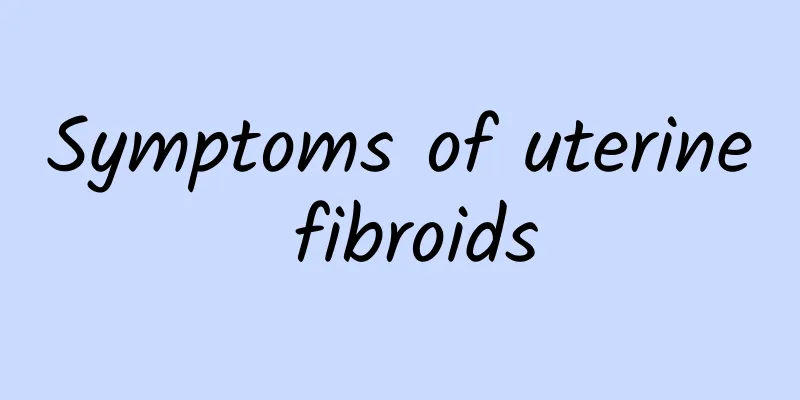Psychological nursing care for patients with recurrent miscarriage

|
Recurrent miscarriage is a major physical and mental pain for patients. If their psychology is not given enough attention and care, they will feel anxious and uneasy, which makes subsequent abortion surgery or treatment difficult. Therefore, it is very important to do a good job in psychological care for patients with recurrent miscarriage. Below we introduce what psychological care is there for patients with recurrent miscarriage? The purpose of psychological care is to help patients overcome their fear and anxiety and accept the surgery calmly, thereby reducing pain during the operation, shortening the operation time, reducing blood loss, and greatly reducing the incidence of artificial abortion syndrome. Experts use preoperative psychological care, psychological comfort and humanistic care during and after the operation for patients undergoing outpatient abortion, which effectively relieves the patients' psychological pressure, reduces their pain, reduces the incidence of adverse reactions and sequelae, and plays a positive role in promoting the implementation of family planning operations and the implementation of national policies. 1. Preoperative psychological intervention Before the operation, the nursing staff communicated with the patients from the perspective of a friend, guided the patients to speak out their questions, and patiently answered their questions. At the same time, the nursing staff informed the patients of the superb skills and advanced equipment of the hospital's doctors, and emphasized the safety of the operation to reduce the patients' worries and fears about the operation. For those who are overly anxious, psychological counseling should be provided, or other topics should be discussed to divert the patients' attention. 2. Intraoperative care During the operation, the nursing staff will accompany the patient into the operating room, introduce the various equipment in the operating room to the patient, guide the patient to get into the right position, and start preoperative preparations. During the operation, the nursing staff will try to cover the patient's unnecessary exposure to reduce the patient's psychological burden. Before the operation, the surgical process and time for patients with simple hyperlipidemia will be explained to guide the patient to accept the operation with peace of mind. During the operation, the nursing staff will always accompany the patient's bedside, constantly give the patient support and encouragement, and appropriately inform the patient of the progress of the operation. For the patient's negative emotions caused by pain, the attitude should be sincere, gentle and caring, and the patient's embarrassment and anxiety should be resolved. 3. Postoperative care The nursing staff helps the patient to rest on the bed. The nursing staff regularly asks the patient about the pain, checks the amount of vaginal bleeding, encourages the patient to relax, and gives analgesics to patients with poor pain tolerance according to the doctor's orders. After the patient's vital signs are stable, the nursing staff should patiently tell the patient to take good care of herself after delivery, which can effectively prevent artificial abortion syndrome, uterine perforation, and secondary amenorrhea, and guide her to learn how to take care of herself. Before the patient leaves the hospital, the nursing staff should use encouraging and comforting language to provide psychological counseling to the patient, and at the same time begin to promote correct contraceptive knowledge and encourage her to correctly understand sexual issues. Patients with repeated artificial abortions are relatively fragile and urgently need the care and support of medical staff. Clinical psychological nursing intervention provides targeted caring nursing services. In actual clinical psychological nursing, nurses should pay attention to clinical nursing details. For example, after the operation, nurses accompany patients to the observation area and rest area, help patients prepare sanitary napkins, hot water and other items, and help patients leave the operating room if they are in severe pain, giving patients a warm medical experience. In summary, adding clinical psychological nursing intervention to repeated artificial abortion care can help improve patients' anxiety and reduce postoperative pain, and the clinical application effect is good. |
<<: How to arrange diet after miscarriage?
>>: Is the cure rate of coagulation dysfunction in abortion high?
Recommend
Is Bartholinitis Dangerous?
Bartholinitis is a gynecological disease that oft...
Experts reveal how women can prevent cervical hypertrophy
Cervical hypertrophy is very harmful to women, an...
Explain in detail the causes of pelvic inflammatory disease
The appearance of pelvic inflammatory disease mak...
Four major precautions to help you prevent adnexitis
Prevention of adnexitis is a headache for many ma...
Understanding the symptoms of menopause in women
Everyone knows that women have menstruation every...
Will taking ranitidine delay my period?
Will taking ranitidine delay my period? Clinicall...
Beware of these causes of cervical erosion
Cervical erosion is also a common cervical diseas...
Can I get pregnant and have a baby if I have an ovarian cyst?
It is possible to become pregnant and have a chil...
What is the cause of uremia?
What is the cause of uremia? The causes of uremia...
Five detailed symptoms of early ectopic pregnancy
The occurrence of ectopic pregnancy brings a lot ...
The analysis of vaginitis can start from leucorrhea
Analyzing the symptoms of vaginitis, confirming t...
Introduction to the causes of vulvar leukoplakia that female friends should know
The cause of vulvar leukoplakia is a matter of gr...
3 reasons for infertility after artificial abortion
Artificial abortion refers to the operation of te...
Humid weather can cause vaginitis to recur
Humid weather makes vaginitis more likely to recu...
How many days is appropriate for abortion surgery?
Generally speaking, it is more appropriate to per...









